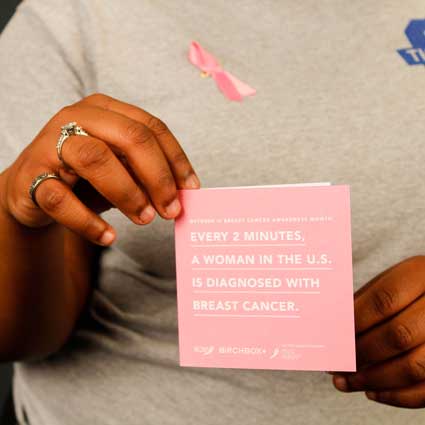Story by Mikayla Marshall, Staff writer

During October, Breast Cancer Awareness Month, friends and family don pink ribbons to show their support of others suffering from breast cancer. Every two minutes a woman in the United States is diagnosed with breast cancer, according to the Susan G. Kormen Organization.
October is Breast Cancer Awareness month, but students didn’t see much awareness. Kimberly Paschall, director of Health Services, said Health Services did not conduct any specific group programs addressing breast cancer awareness in October.
“Our healthcare professionals evaluate, diagnose, treat and educate on a more individual basis every day,” Paschall said. Women’s health information is provided to residential colleges and groups on campus as requested.
Though it may not be a major concern for some, it is for others.
“Two of my grandmothers have had it,” Taylor Sumner, freshman from Hopkinsville, Kentucky, said. “So I do worry about it some.”
Each year, about 70,000 men and women aged 15 to 39 are diagnosed with cancer, according to the Young Survival Coalition, with breast cancer being most common for women.
Breast cancer can affect college women directly and indirectly.
“Few women of college age will be diagnosed with breast cancer themselves, although age is not the limit for education,” said Loreta Garretson, Oncologist at the Murray-Calloway County Hospital. “I have seen patients as young as in their mid-twenties diagnosed with breast cancer.” Garretson has been the oncologist in Murray for six weeks and said she has seen a lot of positive things from the city, but there’s always room for extra campaigning or events.
“It is very important that awareness would reach everyone, especially those who are in more rural areas and the ones who have limited access to healthcare or are socioeconomically vulnerable,” Garretson said.
Mackenzie Chapman, sophomore from Chaffee, Missouri, said awareness events on campus need to reach more of the student population.
“It needs to go toward more of the student population, who don’t do sports or participate in Greek life just the basic students,” Chapman said.